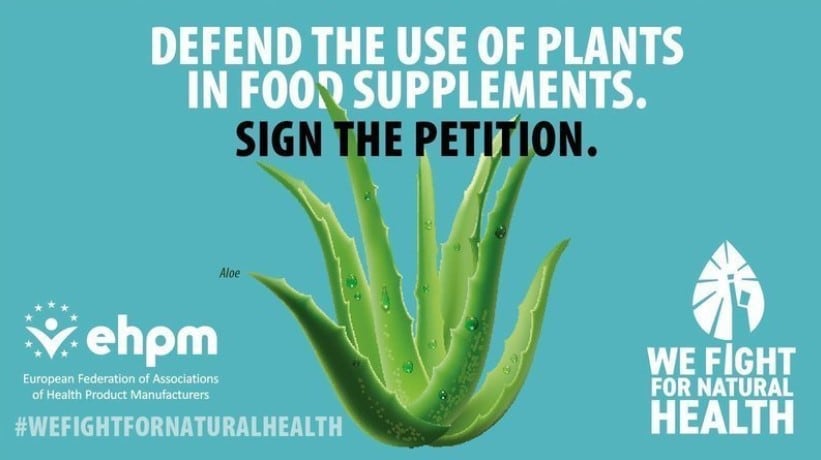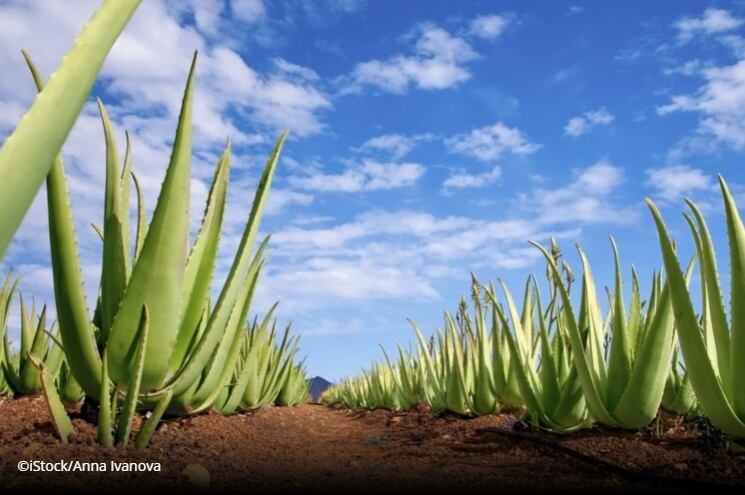The federation’s petition seeks to counter recent plans by Member States of the European Commission (EC) to prohibit the use of hydroxyanthracene-containing extracts such as Aloe, emodin, Aloe-emodin, and Aloe preparations over safety concerns that include intestinal dysfunction.
If approved by the European Parliament, the EHPM believes that not only will the use of these botanicals be prohibited but plants such as senna, cascara and rhubarb may well be in the firing line due to their roles in improving intestinal function.
“Our goal is to allow scientific authorities to benefit from more time to assess the safety of these plants,” says the EHPM.
“The European Federation of Associations of Health Product Manufacturers (EHPM) calls for producers to be given more time to be able to demonstrate the safety of their products and for EFSA to have time to assess recent scientific publications.
“Consequently, we ask MEPs and European citizens to sign this petition in order to call on the European Commission to modify its proposal by allowing time for a better assessment of the safety of the Aloe.”
ENVI decision
The European Parliament’s Committee on the Environment, Public Health and Food Safety (ENVI) is due to vote on the text later this week, having previously voted on an objection on 27 January.
The regulation’s origins stem from a scientific opinion formed by the European Food Safety Authority (EFSA), which concluded there was a safety concern for extracts containing hydroxyanthracene derivatives adding that uncertainty persisted due to the lack of data.
The Panel was unable to provide advice on a daily intake of hydroxyanthracene derivatives that did not raise concerns about harmful effects to health.
Since then the EC has proposed an outright ban on the basis of the precautionary principle.
Subsequent discussions led to the EC suggesting the HADs be removed from Aloe products so the plant could continue to be used.
However, critics argued that by removing the substances that improved intestinal function, the benefits linked to Aloe and similar plants would also be eliminated.
The fear is the EC’s approval of the regulation, would remove an entire category of food supplements beneficial for proper bowel function.
To add further credence, new scientific studies confirming the safety of Aloe and other affected plants have recently been published, but the EHPM said the EC has refused to give EFSA more time for the authority to assess the new data.
Counting on the EU Parliament
“This European proposal severely undermines the use of natural substances for health and thus contravenes the principle of the European Green Deal,” adds the EHPM.
“If the European Parliament approves the European Commission's Aloe Vera proposal, thousands of jobs will be cut in Europe and thousands more around the world will be left out of work due to the loss of European opportunities.”
“That is why we are counting on the action of the European Parliament.”
Andrea Gatti, European Sales Manager for Monteloeder, a Spain-based nutraceutical and natural extract specialist expressed more concern over the way safety evaluations were being carried out especially if they resulted in bans for established ingredients.
“Even if I strongly believe that safety must always be the key driver of our daily activity and a central independent control is much more than desirable,” he said.
“In alignment with EHPM I'm more often concerned by the way the evaluations on safety assessment are performed and by which, in the end, total bans are imposed on products we have been safely using for decades.”
“I wish the EHPM petition achieves its goal and I hope that this initiative would help to raise awareness on the general issue of how to perform this type of assessment.”


